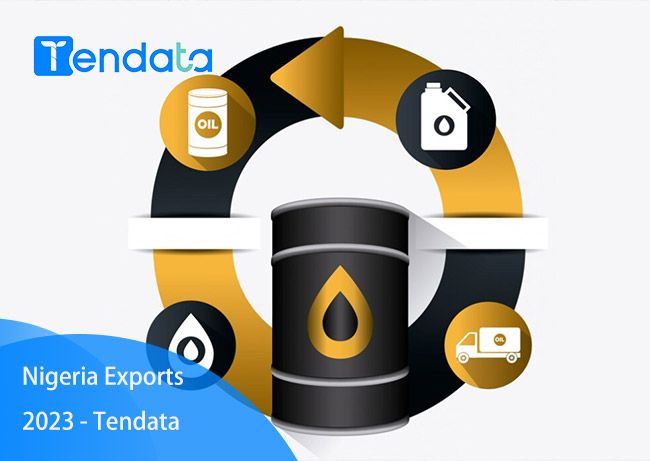 Export News
Export News
 24-05-2024
24-05-2024
Nigeria, often referred to as the "Giant of Africa," is one of the continent's largest economies. Its export sector plays a crucial role in driving economic growth, providing revenue, and creating employment. This article provides an overview of Nigeria's export landscape, key export products, and Nigeria's export partners.

(1)Overview of Nigeria's Export Sector
Nigeria's export sector is diverse, with the country exporting a range of products to various global markets. However, the sector is predominantly driven by the oil and gas industry, which accounts for the majority of the country's export revenues. Despite this, there is significant potential in non-oil exports, which are gradually gaining traction as the government pushes for diversification.
(2)Key Nigeria Export Products in 2023
1. Mineral fuels, oils, distillation products(91.61%, $59.66 Billion)
2. Fertilizers(1.64%, $1.07 Billion)
3. Oil seed, oleagic fruits, grain, seed, fruits(1.32%, $856.4 Billion)
4. Cocoa and cocoa preparations(1.25%, $815.04 Billion)
5. Edible fruits, nuts, peel of citrus fruit, melons(0.54%, $352.45 Billion)
6. Aluminum(0.46%, $301.16 Million)
7. Ships, boats, and other floating structures(0.3%, $198.34 Million)
8. Copper(0.29%, $191.75 Million)
9. Ores slag and ash(0.26%, $170.41 Million)
10. Machinery, nuclear reactors, boilers(0.24%, $158.49 Million)
(3)Nigeria Export Partners in 2023
1. Netherlands(12.74%, $8.18 Billion)
2. Spain(9.55%, $6.13 Billion)
3. India(8.49%, $5.45 Billion)
4. United States(7.57%, $4.86 Billion)
5. Indonesia(6.63%, $4.26 Billion)
6. France(6.63%, $4.26 Billion)
7. Canada(6.03%, $3.87 Billion)
8. Ivory Coast(4.08%, $2.62 Billion)
9. United Kingdom(3.97%, $2.55 Billion)
10. Italy(3.92%, $2.52 Billion)
Conclusion
Nigeria's export sector offers a wealth of opportunities across various industries, from traditional oil and gas to emerging agricultural and manufactured goods. By understanding the key products, opportunities, and challenges, businesses can effectively engage in trade with Nigeria and contribute to the country's economic growth and diversification. Leveraging market research, ensuring compliance with standards, and utilizing government support are essential strategies for success in the Nigerian export market.
Tendata provides the following types of customs data:
1. Trade Data
Tendata offers over 10 billion trade records covering 218 countries and regions, accumulating detailed transaction details from over 2 billion trade transactions. This enables precise analysis of the distribution of global target import and export countries, details of import and export customs districts, and the market environment of target countries.
2. Business Data
Tendata's business data covers 198 countries and includes commercial databases for over 230 industries, with data on more than 210 million companies. It covers various aspects of enterprise operations, financial information, competitors, and senior executives. This finely detailed data facilitates in-depth evaluation of the true strength of target customers and expands potential customer base.
3. Cloud Search Data
Tendata's data covers 172 countries and includes contact information for over 700 million companies. In addition to basic information such as company names, official website links, product images, and contact persons, it also integrates information from platforms like LinkedIn and social media, helping foreign trade enterprises gain a panoramic understanding of customers and the market. Furthermore, real-time updated data enables companies to stay informed about market changes and respond promptly.


Category
Leave Message for Demo Request or Questions


 T-info
T-info T-discovery
T-discovery

 My
Tendata
My
Tendata Market Analysis
Market Analysis Customer
Development
Customer
Development Competitor
Monitoring
Competitor
Monitoring Customer Relationship
Customer Relationship





































































































































